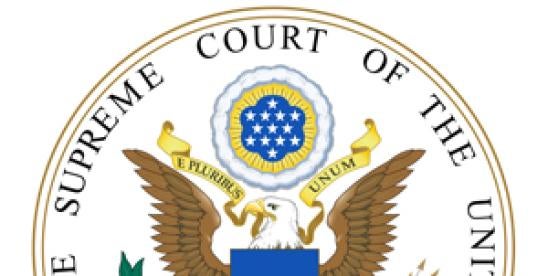The United States Department of Labor (“DOL”) did not violate the Administrative Procedure Act (“APA”) when it failed to provide the public with notice and an opportunity to comment before it flip-flopped on the application of the Fair Labor Standards Act’s administrative exemption to loan officers, finding them newly non-exempt, the U.S. Supreme Court has held. Perez v. Mortgage Bankers Association, et al., No. 13-1041, 2015 U.S. LEXIS 1740 (Mar. 9, 2015). The Court reversed the decision of the U.S. Court of Appeals for the D.C. Circuit.
The D.C. Circuit had held new interpretations of regulations that significantly deviate from prior definitive interpretations require a public notice-and-comment period, relying on earlier Circuit precedent, Paralyzed Veterans of America v. D.C. Arena, L.P., 117 F.3d 579 (D.C. Cir. 1997).
But the Supreme Court, in a unanimous opinion, disagreed. It held under Section 4 of the APA, an agency is not required to use notice-and-comment procedures when issuing interpretive rules. Requiring the agency to comply with notice-and-comment provisions for subsequent interpretations, even where the new interpretations substantially differ or even contradict prior interpretations, the Court said, imposes procedural obligations on the DOL that go beyond those required by the APA.
Concurring Opinions Question Deference
Although the Court’s decision was unanimous, concurring opinions by Justices Samuel Alito, Antonin Scalia, and Clarence Thomas flagged a larger, underlying issue, and ultimately may have far wider implications for agency regulations than the Court’s decision: the deference, if any, courts should give to an agency’s interpretation of its own regulations. These three Justices appear ready to reconsider the Court’s prior holdings, beginning with Bowles v. Seminole Rock & Sand Co., 325 U.S. 410 (1945), that courts should defer to an agency’s interpretations of its own regulations, noting the possible violation of separation of powers that occurs when courts are required to do so, because the agency is permitted both to make the law and then interpret it. Chief Justice John Roberts raised a similar interest in a case decided in 2013, Decker v. Northwest Envtl. Def. Ctr., 133 S. Ct. 1326 (2013).
The Justices sympathized with the D.C. Circuit’s attempt in Paralyzed Veterans to reign in agency reversals of position — Justice Scalia characterized the doctrine as a “courageous (indeed, brazen) attempt to limit the mischief” — but found that it was not a viable cure for the problem. Justice Alito recognized the “understandable concern about the aggrandizement of power of administrative agencies as a result of the combined effect of (1) the effective delegation to agencies by Congress of huge swaths of lawmaking authority, (2) the exploitation by agencies of the uncertain boundary between legislative and interpretive rules, and (3) this Court’s cases holding that courts must ordinarily defer to an agency’s interpretation of its own ambiguous regulations.” He noted that only the third concern is one that can be addressed by the Court, and invited a case in which the Seminole Rock doctrine of deference to agency interpretations can be fully briefed.
Justice Scalia, in his concurrence, explained the exemption for interpretive rules from the notice-and-comment procedures in the APA “was meant to be more modest in its effects than it is today” because when the APA was enacted, Congress “contemplate[d] that courts, not agencies, will authoritatively resolve ambiguities in statutes and regulations.” The Supreme Court’s jurisprudence following the passage of the APA has unsettled that balance, he said. TheSeminole Rock doctrine of deference undermines judicial review and gives interpretive rules the force of law, he explained. While the majority opinion noted that deference is not an “inexorable command in all cases,” Justice Scalia found that review based on the limited exceptions recognized in the Seminole Rock and Auer v. Robbins, 519 U.S. 452 (1997), line of cases is insufficient and he would restore the balance contemplated by the APA by likely abandoning the doctrine.
Finally, in a long and detailed concurrence reviewing the development of the judicial deference line of cases, Justice Thomas explained the separation of powers concerns raised by this doctrine. The Seminole Rock doctrine of deference arose, in Justice Thomas’s view, largely without citation or explanation before the APA was passed, and has since taken on a life of its own. He argued this line of cases was “constitutionally suspect from the start,” amounting to a transfer of interpretive judgment that “raises serious separation-of-powers concerns.” Like Justice Scalia, Justice Thomas recognized that for a regulated party, a new interpretation might as well be a new regulation as judicial deference gives the interpretation the practical force and effect of law. Justice Thomas stated plainly that the Seminole Rockdoctrine “should be reconsidered in an appropriate case.”
***
The immediate effect of Perez v. Mortgage Bankers Association is that an agency may issue interpretive rules or guidance — even if they are inconsistent with a prior interpretive rule or opinion — without first providing a notice-and-comment period. Thus, administrative agencies now may change interpretations with the political winds — which, in this case, blew with changes of administrations. But there is good reason to use that freedom sparingly. These abrupt reversals have drawn the attention of at least four Justices who appear poised to overrule the underlying doctrine of judicial deference to agency interpretive rules, perhaps signaling a more fundamental challenge to come. Even the majority opinion noted that while an agency can change position without providing a notice-and-comment period, when an agency does so, a court justifiably may be unwilling to defer to the agency’s latest interpretation simply because it is the most recent.






 i
i


